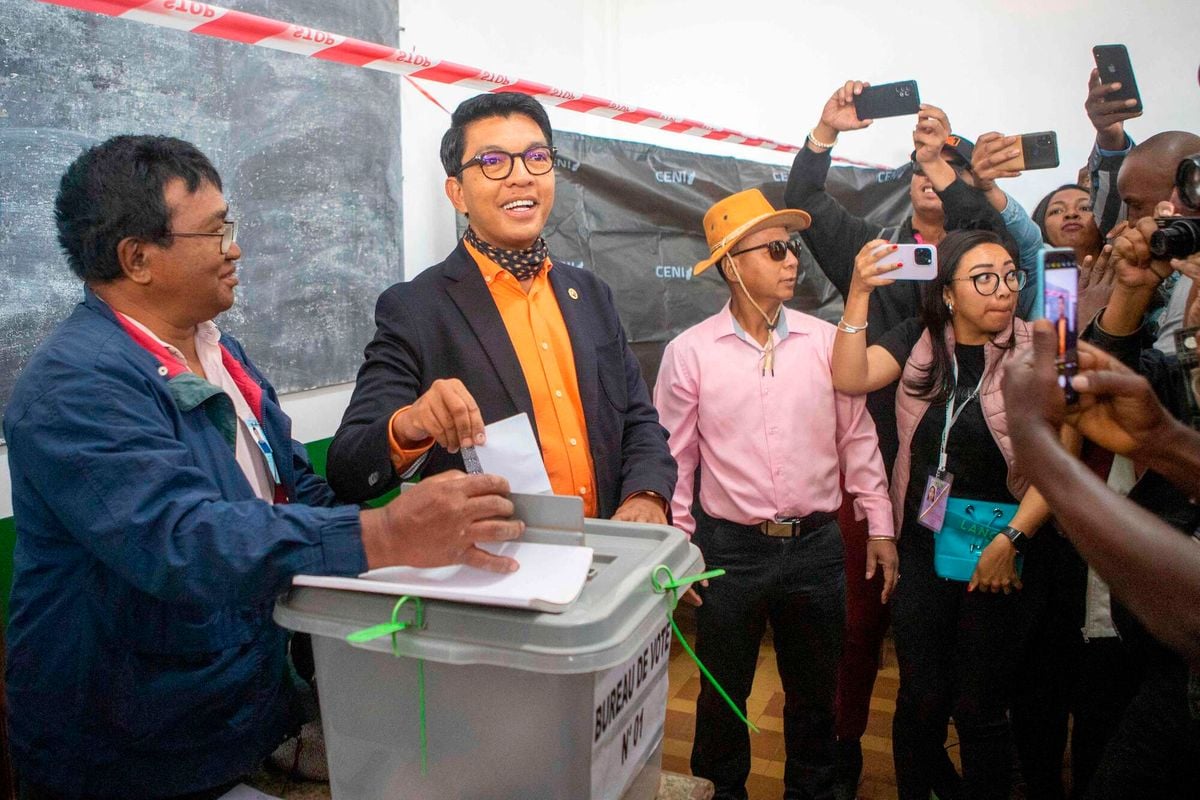

In a controversial move, President Andry Rajoelina has been sworn in for a new term as the leader of Madagascar, despite an opposition boycott. Former presidents Marc Ravalomanana and Hery Rajaonarimampianina, who attended Rajoelina's swearing-in ceremony in 2018, have chosen to stay away this time. The economy of Madagascar is currently in crisis, with Rajoelina vowing to prioritize improving livelihoods in one of the world's poorest countries. The inauguration was attended by representatives from other African nations, but demonstrations have been banned in Antananarivo since Tuesday. Western nations have expressed concerns about the electoral process and have called for legal and electoral reforms.
Rajoelina first became president in 2009 after Ravalomanana was ousted in a military mutiny. The country's economy has been struggling, with Madagascar being the world's largest producer of vanilla, but facing a decline in prices and sluggish demand. Approximately 75% of the population lives below the poverty level. In an attempt to address these issues, Rajoelina has visited impoverished areas of the capital and distributed solar lamps. However, some opposition activists have faced criminal charges for participating in demonstrations prior to the election. For instance, Rina Randriamasinoro, the secretary general of the TIM opposition party, was sentenced to two years in prison for taking part in a banned demonstration.
Despite the opposition boycott and concerns raised by Western nations, Rajoelina's new term as president has officially begun. The situation in Madagascar remains tense, with ongoing economic challenges and a divided political landscape. The international community will be closely watching the actions and policies of President Rajoelina as he navigates the country through this critical period.
Meanwhile, in Rwanda, President Paul Kagame has been sworn in for a fourth term after winning the elections with over 99% of the vote. The inauguration ceremony took place in Kigali and was attended by several heads of state and dignitaries. Kagame, who has ruled Rwanda since the 1994 genocide, took the oath of office and pledged to preserve peace and national sovereignty. Critics argue that his overwhelming victory highlights the lack of democracy in Rwanda, as only two candidates were authorized to run against him out of eight applicants. Kagame is credited with rebuilding the nation after the genocide, but opponents claim he rules with fear and suppresses dissent. Angola’s President Joao Lourenco attended the ceremony and was scheduled to have private talks with Kagame regarding a ceasefire deal in the Democratic Republic of Congo. With 65% of the population under 30, Kagame is the only leader most Rwandans have ever known. He has won every presidential election he has contested and oversaw constitutional amendments in 2015 that allowed him to potentially rule until 2034.
[1063eeb9] [8a986f37]